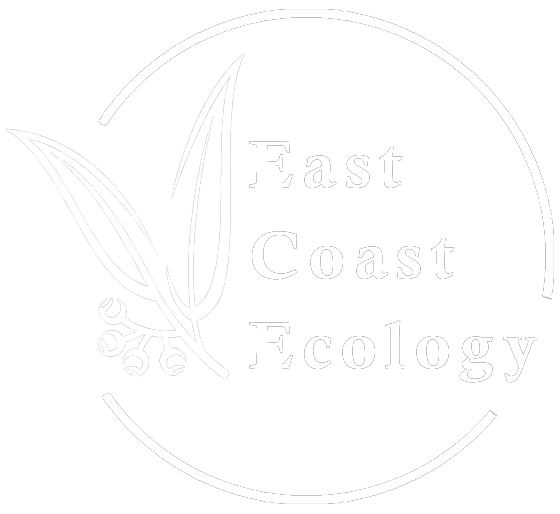
Environmental Management Plans
What is an Environmental Management Plan (EMP)?
East Coast Ecology is committed to promoting the importance of protecting and preserving the natural environment. Environmental Management Plans (EMPs) are one of the critical tools we use to ensure any development project minimises its impact on the environment, all while ensuring compliance with the relevant laws and regulations for New South Wales.
The specific purpose of an Environmental Management Plan involves the following:
Developing measures to reduce waste and pollution
Protecting natural habitats and biodiversity
Promoting sustainable resource use
Environmental Management Plans can help stabilise an organisation's development plan by ensuring efficiency in achieving goals whilst cost-effectively approaching projects. Through an Environmental Management Plan, East Coast Ecology can help address potential environmental impacts early on.
Need an Environmental Management Plan?
Give us a call, send us an email or fill out the contact form and one of our experts will get back to you shortly.
PHONE: 02 7813 6119
EMAIL: admin@ececology.com.au
When is an Environmental Management Plan required?
An Environmental Management Plan is required for an organisation that intends to proceed with a development proposal that may impact the natural environment. In Australia, various circumstances, businesses, and projects may require an EMP. For many projects, whether an EMP is required will depend on the laws and regulations of each state or territory.
East Coast Ecology has compiled the most common ways to determine whether an organisation will need an Environmental Management Plan:
1. Development projects: Any large-scale development projects may require an Environmental Management Plan to ensure the project is handled in a manner that minimises detrimental impacts on the surrounding natural environment.
2. Resource extraction: In the case of extracting natural resources, such as mining, oil, or gas extraction, an Environmental Management Plan will be required as these projects rely heavily on changing the biodiversity of an area.
3. Manufacturing or industrial operations: If your organisation plans to pursue industrial processes that have the potential to release pollutants in the air, soil, or water, you will be required to have an Environmental Management Plan. This is to ensure such impacts of removing harmful properties is properly managed.
4. Waste Management: Large-scale waste management facilities that include landfills or incinerators will require an EMP as a strategy to minimise environmental impacts.
5. Government Projects: Government projects such as the construction of a highway may be required to provide an Environmental Management Plan to also reduce the harmful impacts of the development on the surrounding environment.
East Coast Ecology can help you determine whether your development project will require an Environmental Management Plan. Qualified professionals like East Coast Ecology’s environmental consultants and ecologists should also carry out an EMP. For further information on the benefits and impacts of a proposed development, get in touch with our team for a free consultation with an accredited environmental management assessor.
Why Choose East Coast Ecology?
East Coast Ecology has a small team of highly qualified Ecologists, Environmental Scientists, and Bushfire Practitioners. As a team, we have helped clients deliver hundreds of Development Applications, State Significant Developments, and State Significant Infrastructure projects across NSW.
Only a qualified ecologist may prepare an Environmental Management Plan (EMP). At East Coast Ecology, we are fully qualified as accredited assessors and staffed by former Local Government Officers who understand the intricacies of EMPs and can successfully navigate and meet Council expectations in various states and territories for every type of development project.
As environmental experts, we thoroughly understand the NSW planning system and can provide expert advice on how to best integrate sustainable values into your development project.
East Coast Ecology services all of New South Wales, providing Environmental Management Plans across the state. This includes regions from Western Sydney to Greater Sydney, Blue Mountains, Newcastle, Central Coast, Port Macquarie, North Coast, Shoalhaven, Eurobodalla, Hunter Valley, Wollongong, Illawarra, Southern Highlands, Central West, and the rest of regional New South Wales.
What Is Included in an Environmental Management Plan from East Coast Ecology?
An Environmental Management Plan is required to include the following information before being assessed by a Consent Authority.
Environmental Management Plans play an essential role in reducing the potential impacts on the natural environment. East Coast Ecology is committed to preparing each EMP of an extremely high standard, that is easy to read and to interpret. Below we have provided a structural explanation on how each Environmental Management Plan is prepared and structured.
INTRODUCTION
The introduction will identify the project’s background.
Include its objectives and the steps that have led to pursuing this project.
Determines the key stakeholders involved.
PROJECT DESCRIPTION
This section will provide further information on the project, from defining the nature and scope of the development.
It will also include:
Location
Construction/Operation Activities
Time and Scheduling
ENVIRONMENTAL MANAGEMENT PLAN OBJECTIVES
The objectives subheading will illustrate what the EMP is trying to achieve. East Coast Ecology will ensure that these objectives are specific and not broad policy statements.
It may include:
Special site features and best practice environmental management
Objectives that relate to general site management
APPROVAL AND LICENSING REQUIREMENTS
East Coast Ecology will include relevant requirements to ensure they are considered, including:
Listing the conditions of approval or consent
Provision of a table listing the legislation pertinent to the project.
Licenses, approvals or permits that may be required to carry out the development
Clear identification of the people responsible for obtaining such requirements
ENVIRONMENTAL MONITORING
This section will explain how environmental management activities and controls will be monitored.
It should be a clear checklist of when specific environmental control activities will be carried out, identify who is responsible and what methods will be used to measure its effectiveness.
Contact us
for a free quote
We would love to hear from you.
Give us a call, send us an email or fill out the contact form and one of our experts will get back to you shortly.
PHONE: 02 7813 6119
EMAIL: admin@ececology.com.au

